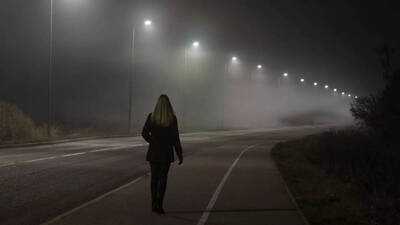
In the shadows of Japan 's bustling cities lies a chilling phenomenon known as ‘ Johatsu ,’ or ‘evaporation.’ Each year, thousands of individuals choose to vanish, leaving behind their families, jobs, and identities in a desperate bid to escape societal pressures. Imagine waking up one day to find someone you love has simply disappeared, swallowed by the anonymity of the night. This unsettling reality raises haunting questions like What drives people to such extremes? The idea of vanishing may seem extreme, but for many, it represents a desperate escape from shame and despair.
What is Johatsu?
Johatsu is a Japanese term that means 'evaporation.' It refers to the act of people disappearing without leaving any trace, leaving behind their homes, families, and former lives. The reasons for such drastic actions often stem from immense societal pressures and personal failures that feel overwhelming.
 Who becomes Johatsu?
Who becomes Johatsu?
Every year, thousands of people in Japan choose this path. As mentioned by TIME, according to French journalist Léna Mauger, nearly one hundred thousand individuals vanish annually. Many of these individuals are grappling with serious problems such as depression, addiction, or the stigma associated with divorce and financial difficulties. For some, the idea of facing family and friends after a failure is unbearable. Instead of confronting these challenges, they opt for the silence and invisibility that comes with disappearing. The reasons behind becoming Johatsu vary widely. Some individuals may be fleeing from abusive relationships or overwhelming debt. Others might feel trapped by societal expectations or the pressures of work culture, where losing a job can be seen as a disgrace. In these situations, vanishing seems like the only way out.
The role of night movers
As per several reports, there are special companies known as ‘night movers’ that help people disappear from their lives. These companies offer discreet services to individuals who want to vanish without a trace. Night movers' is how the term has been used to describe these companies due to the secretive nature of their work because in most cases, they operate during night hours to ensure that the move is unnoticed. Their primary job is just to help clients escape the situation and start anew.
Night movers offer essential services for those wanting to disappear. They help clients move quietly and efficiently, ensuring belongings are packed and transported without drawing attention. Additionally, they assist in creating new identities by helping clients obtain new identification documents. Many clients also receive emotional support to cope with their decisions and plan for a fresh start. TIME reported back in 2017, that the cost of hiring night movers can vary widely based on several factors. Generally, it can range from ¥50,000 (about $450) to ¥300,000 (around $2,600) which was approximately INR 30,000 to over INR1.5 lacs.
Privacy in Japanese society
In Japan, privacy is highly valued, which helps those who become Johatsu to hide effectively. Japanese sociologist Hiroki Nakamori, who has studied the johatsu phenomenon for many years, told the BBC that the term began to be used in Japan during the 1960s. People realized that often the easiest way out for them and their family was to simply disappear. "In Japan, it's just easier to evaporate," Nakamori said. Police will not intervene unless there's another reason — like a crime or an accident. All the family can do is pay a lot for a private detective. Or just wait. That's all.
People can cut off their old lives and never have to worry about being followed through technology like CCTV cameras or ATMs. This privacy allows them to disappear into obscurity and not be discovered, thus making the process of a new life more possible.
The phenomenon of Johatsu and the level of privacy may also lead to serious effects on the families left behind. When someone disappears, parents and relatives often feel powerless and heartbroken. One mother expressed her pain to BBC by saying, “With the current law, all I can do is check if a dead body is my son – that’s all that’s left for me.” This reflects the deep emotional toll that such actions take on loved ones, who are left with unanswered questions and a sense of loss.
 Life after disappearing
Life after disappearing
For those who successfully become Johatsu, life is marked by anonymity and caution. They often move to quieter areas where fewer people live and take on low-profile jobs that do not require background checks. This helps them avoid being discovered and allows them to blend into their new surroundings. Living anonymously gives them a chance to escape the pressures and expectations of their previous lives.
While some individuals find relief in their new lives, free from societal pressures, others face challenges such as feelings of loneliness and fear of being found. The stigma surrounding Johatsu makes it difficult for those who return to share their experiences, as they may feel ashamed or judged. Many prefer to keep their past hidden, which can lead to ongoing emotional struggles.
The chilling reality of ‘Johatsu’ serves as a haunting reminder of how easily lives can be erased. This unsettling phenomenon reveals the fragility of human relationships and the terrifying lengths to which people may go to escape their pain. Although it may seem like an extreme solution to life's problems, for many facing overwhelming pressures, it offers a way out, a chance to start fresh without the burden of shame or failure. One must always remember that life is life is filled with ups and downs, and there is always hope for healing and connection.
 In the shadows of Japan 's bustling cities lies a chilling phenomenon known as ‘ Johatsu ,’ or ‘evaporation.’ Each year, thousands of individuals choose to vanish, leaving behind their families, jobs, and identities in a desperate bid to escape societal pressures. Imagine waking up one day to find someone you love has simply disappeared, swallowed by the anonymity of the night. This unsettling reality raises haunting questions like What drives people to such extremes? The idea of vanishing may seem extreme, but for many, it represents a desperate escape from shame and despair.
In the shadows of Japan 's bustling cities lies a chilling phenomenon known as ‘ Johatsu ,’ or ‘evaporation.’ Each year, thousands of individuals choose to vanish, leaving behind their families, jobs, and identities in a desperate bid to escape societal pressures. Imagine waking up one day to find someone you love has simply disappeared, swallowed by the anonymity of the night. This unsettling reality raises haunting questions like What drives people to such extremes? The idea of vanishing may seem extreme, but for many, it represents a desperate escape from shame and despair.

